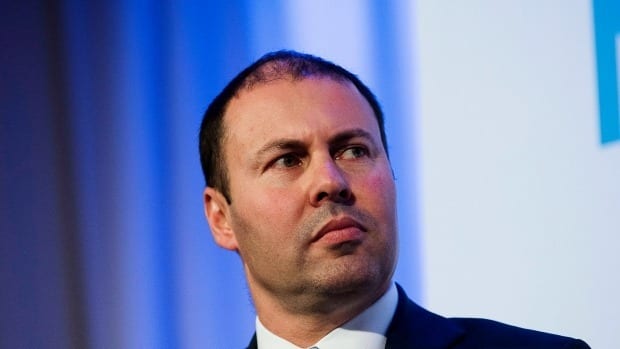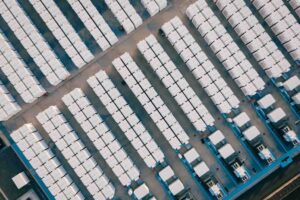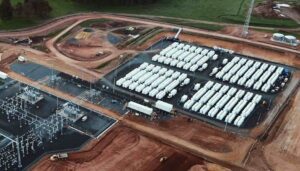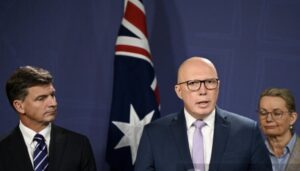New environment and energy minister Josh Frydenberg says the Coalition government intends to go ahead with its plan to strip $1.3 billion of funds from the Australian Renewable Energy Agency and end its grant-funding mechanisms, and says he expects Labor to support it.

In an interview with RenewEconomy on Thursday, Frydenberg also canvassed other policy areas under his new combined portfolio. Among the highlights:
He repeated his pledge that the current renewable energy target is “set in stone”, despite a big push from some in the fossil fuel industry to have the target weakened further.
He will seek “co-ordination” from the states on their climate and energy policies, although he did not say whether he would be insisting that individual states abandon their own targets. (Three states – South Australia, Victoria and Queensland – and one territory, the ACT, have renewable targets that are more ambitious and longer lasting than the federal target, which is equivalent to a 23.5 per cent target by 2020).
In a response that will disappoint many in the climate policy arena, Frydenberg insisted that next year’s climate policy review will be a “sit-rep” – a situation report that will assess the ability of current policies to meet existing targets – and will not look at longer-dated targets (such a zero emissions by 2050), or as an opportunity to set more ambitious targets.
He says the price of gas is the key component of future electricity prices, and he will be bringing “many” of the recommendations by the ACCC and the AEMC to the COAG energy ministers meeting next week.
He said he was monitoring the progress of solar thermal with storage plants, such as the new $1 billion plant in Nevada, although he did not mention any specific policy or initiative to bring the technology to Australia.
The tone of the interview – which you can read in full here – was one of caution. Frydenberg shows no sign of deviating from Coalition policies, even if he does recognise that a lot of effort needs to be thrown at climate and clean energy policies to avoid an economic and political train crash.
“One of the challenges that I have with this portfolio is I can’t please everyone. Bob Brown will never be happy, nor will Alan Jones,” he told RenewEconomy. And, we also suggested, he needs to cater for a range of views from within his own Coalition – from those, like him, who say they accept the climate science, to those who simply do not.
Before the election, the Coalition said it would use $1 billion of money from the Clean Energy Finance Corp and create a new fund called the Clean Energy Innovation Fund that would support the “riskier” end of clean energy investment, but only through loans and equity investment, not grant funding.
That meant that ARENA, which will jointly manage the new fund with the CEFC, would be stripped of its remaining legislated funding – a total of $1.3 billion. The Coalition had flagged this move in the 2014 budget, but never presented legislation because it did not have numbers in the Senate.
It is still not clear that it does. But Frydenberg said he expects Labor to support the budget measure, given that it also proposed to de-fund ARENA, apart from some $300 million that Labor said it would reserve for large-scale solar thermal projects and community energy.
Labor, which appeared to make that policy on the run in a fit of pique about the lack of support from NGOs, did say it would review its position should it win government. But it is still not clear what its intentions will be when the legislation is finally presented.
If Labor does vote to protect ARENA, as it had continued to do since the Coalition was first elected in 2013, then ARENA’s grant funding can likely be defended if the Nick Xenophon Team also supports it.
Next week’s meeting of energy ministers should be interesting. Frydenberg intends to introduce his proposals to address the gas market, and also to seek “co-ordination” on state and federal climate and clean energy policies. Energy lobby groups, particularly the generators and network operators, are lobbying furiously for the policies to be standardised.
In the interview with RenewEconomy, Frydenberg would not be drawn on what “co-ordination” exactly meant, but any attempts to curb the ambition of individual states is likely to be met with a resounding ‘no’ from those (Labor) states and territories, as ACT energy minister Simon Corbell foreshadowed recently.
But it is on the long-term policies that Frydenberg’s comments may disappoint the most. Perhaps it is too early in his appointment to a joint role that many have been advocating for some time, and Frydenberg has, his advisors says, a thousand people queuing to see him.
Not all of these are advocating the sort of policy reach that many say should now be the focus of a government that, after a “lost decade” of climate and clean energy policy making due to short-term political considerations, needs to focus on how the country will meet its Paris targets.
Will Australia commit to a zero emissions goal by a certain date that the Paris targets appear to demand? Will Australia set longer-dated targets than its current climate policy (2030) and its renewables policy (2020). And will they be increased, as many are calling for?
Frydenberg’s response is: Not anytime soon. Next year’s climate review will be a stocktake only, he suggests, measuring how Australia is going at meeting its current 2020 and 2030 targets (which the Coalition insists are just fine).
To most in the climate sector, that is not good enough. The Paris agreement requires a potential policy reset from 2018, something that appears almost inevitable now, given the climate records that are being smashed, and the temperature rises that are already locked in.










